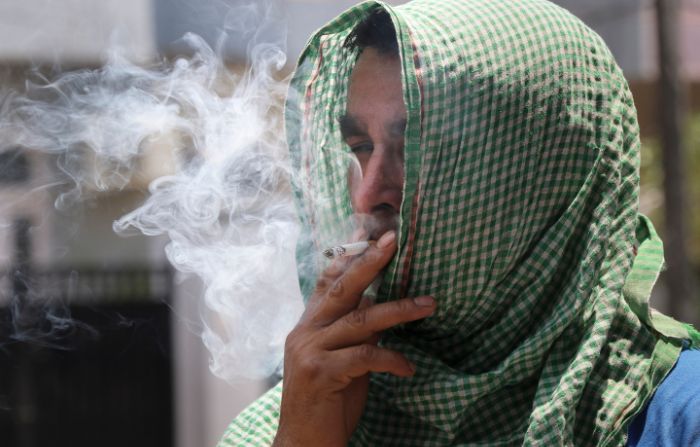- Friday, April 04, 2025
Dr Raj Kumar, director of New Delhi’s Vallabhbhai Patel Chest Institute said nearly 47% of the calls were from young adults aged between 18 and 24 years, making them the largest group of quitters.

By: Shubham Ghosh
OF the 477,000 calls received on the Indian government’s national tobacco cessation quitline that is operated by the Vallabhbhai Patel Chest Institute (VPCI) in New Delhi, 144,938 callers have quit tobacco in any form, officials said on Friday (31), which was observed as the World No Tobacco Day.
Since the launch of the national quitline service in 2016, the total number of calls to hit the IVR is 8.2 million.
The findings of a survey conducted in this regard were released by the VPCI recently.
Dr Raj Kumar, director, VPCI, said 46.96 per cent of the calls were from young adults aged between 18 and 24 years, making them the largest group of quitters.
“This data highlights the growing awareness and determination among India’s youth to combat tobacco addiction,” Kumar said.
Since its inception, the Tobacco Cessation Centre (TCC) at the VPCI has been at the forefront of tobacco control, providing critical support to individuals battling tobacco addiction, he said.
“Our comprehensive approach, combining counselling and pharmacotherapy, has significantly improved the quit rates and public health outcomes,” Kumar added.
More than 43 per cent of the callers were self-employed, 75.85 per cent had no family history of tobacco use and 68.63 per cent used smokeless tobacco, he said.
Uttar Pradesh tops the chart with 150,925 (31.6 per cent) calls and 29.68 per cent quitters.
Additionally, 72.96 per cent of the calls were from individuals with one to 10 years of tobacco use and 77.74 per cent had no history of alcohol use, Kumar said.
India’s first TCC was established at the VPCI in November 2001.
In 2016, the National Tobacco Quitline Service (NTQL), a prestigious project of the Indian health and family welfare ministry, was launched.
Operating from 8 am to 8 pm local time, the toll-free service (1800-11-2356) provides counselling in 15 languages.
Trained professionals guide the callers through the quitting process, providing information, addressing concerns and preparing personalised quit plans.
This comprehensive approach is key to success. Now, satellite centres are also functioning at the Tata Memorial Hospital in the western city of Mumbai, the NIMHANS in the southern city of Bengaluru and the Dr Bhubaneswar Borooah Cancer Institute in Guwahati in the north-eastern state of Assam.
“The NTQLS provides free, confidential counselling and guidance to tobacco users across the country, empowering them to take charge of their health. Quitting tobacco is not just about willpower. We address the psychological and behavioural factors that contribute to addiction, offering strategies to manage cravings and overcome withdrawal symptoms,” Kumar said.
Over the last 23 years, the TCC at the VPCI has organised 376 public awareness programmes, anti-tobacco campaigns and seminars, reaching more than 1.3 million people.
(With PTI inputs)